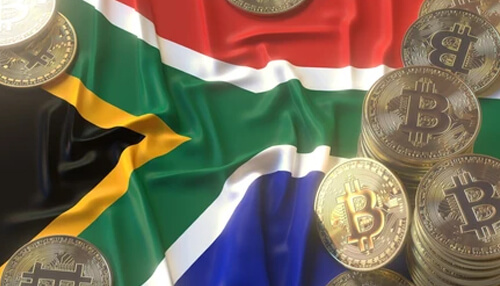As it is widely known now, cryptocurrency is a form of money that relies on blockchain technology, an open, distributed ledger for recording transactions. It uses digital files as its medium of exchange. Typically, the same techniques used in cryptography are used to create the files in cryptocurrencies (the science of hiding information). Since cryptocurrency employs the so-called decentralized control, neither a single individual nor an authority is in charge of it.
Due to its Internet-based nature, this new currency technology is not geographically restricted. Some of the most well-known currencies include Bitcoin, Litecoin, Ethereum, Monero, XRP, EOS, Cardano, etc., but Bitcoin is the market leader both locally and globally.
Africa’s Current Cryptocurrency Landscape
Despite the worries some have and the strict rules in various nations, Africa does not have a particularly large market for cryptocurrency, but it is expanding anyway. Nigeria, South Africa, Kenya, Zimbabwe, and Ghana are the Top 5 African nations where communities are embracing Bitcoin. They also have the most vibrant local Bitcoin communities and the highest demand for digital currency. Additionally, South Africa, Nigeria, and Kenya are among the top 10 nations in the world in terms of cryptocurrency adoption. Does that represent the manner in which African nations are implementing this modern technology?
Nigeria possesses one of the most active peer-to-peer Bitcoin exchange markets in the world, but the nation has so far outlawed cryptocurrencies and warned its people against making investments in them because they lack legal protection. The CBN (Central Bank of Nigeria) issued a warning to all financial institutions and banks in Nigeria on January 12, 2017, advising them never to hold, use, trade, or interact with any virtual currency. The CBN has instructed banks nationwide to cancel the balances of anyone who transacts in cryptocurrencies as of February 5, 2021. The usage of cryptocurrencies has been prohibited not only in Nigeria but also in Algeria, Morocco, Egypt, Libya, Zimbabwe, Zambia, and Namibia.
The Kenyan government does neither support nor forbid cryptocurrencies, but it does warn its residents that they are not legal tender and do not offer any protection in the event that cryptocurrency enterprises collapse. There are no particular laws or rules governing the usage of virtual currencies in South Africa, but the nation has established a Crypto Assets Regulatory Working Group to assess its stance on the assets.
Why, Despite the Difficulties, Does Cryptocurrency Use in Africa Continue To Increase?
One of the factors Africans are switching to cryptocurrencies is the continent’s economic unrest. Due to the fact that businesses like Bitcoin do not have a single domain and their transactions are unaffected by national inflation rates, individuals of African nations can safeguard their income from a faltering economy. Aside from that, Bitcoin makes international payments simpler. For instance, PayPal was originally prohibited in Nigeria due to fraud and money laundering operations, but cryptocurrency businesses use blockchain technology, which uses a decentralized way to keep public data.
This implies that they are unable to prohibit the transaction from a specific nation. Additionally, because cryptocurrencies are decentralized, transactions are speedy, inexpensive, and devoid of intermediaries. For that reason, the best online casinos in Mozambique have introduced the possibility of gambling with crypto money and withdrawing funds in the exact same way. Finally, they are secure in terms of cryptography. African entrepreneurs frequently aspire to operate their companies on a global level. Some of these companies began utilizing blockchain technology and cryptocurrencies in an effort to stand out in the global market and guard against currency depreciation. Therefore, the government’s decision to outlaw cryptocurrencies will not prevent virtual currency transactions from taking place online.
Several African Firms Have Started Using Cryptocurrencies in Their Transactions
Akoin
Akoin, a popular Senegalese singer, introduced the new cryptocurrency Akoin in 2018 in an effort to increase financial stability in Africa, provide a stable monetary system, and ultimately stimulate economies. The Akoin Ecosystem, a future smart city concept close to Dakar that spans 2,000 ha and brings together digital businesses, wants to symbolize the economic backbone of the ecosystem with this currency. Customers will be able to purchase, deposit, and spend their Akoin directly using their application, which became available on every mobile phone in December last year, as part of the Akoin Ecosystem.
The internationally popular musician ensures that the cryptocurrency Akoin will be established on cryptography to safeguard and authenticate transactions and make it hard to counterfeit. He is surrounded by computer engineers. This project is a continuation of Akon’s work in Africa via his Akon Lighting Africa foundation, which has already supplied solar energy alternatives in 18 African nations.
Bankymoon
A South African software and consultancy company called Bankymoon has experience with Blockchain technologies. For clients who need integrations for Bitcoin and other cryptocurrencies, they create custom solutions.
Prepaid blockchain smart meter tech from Bankymoon has been introduced as a solution for African consumers without access to traditional banking services and electricity companies having trouble collecting revenue. They linked Bitcoin transactions into smart metering platforms that let consumers fill up their utility meters with power, gas, and water from anywhere in the world.
BuyCoins
BuyCoins, which was founded in 2017, is the first exchange platform in Nigeria that enables residents of that country to instantaneously and instantly purchase and sell cryptocurrencies (including Bitcoin, Bitcoin Cash, Ethereum, and Litecoin) using their local bank account or debit card. BuyCoins was created as a result of the 2018 Y Combinator Summer Program.
The Non-Bank Financial Institutions (NBFs), Other Financial Institutions (OFIs), and Nigerian Deposit Money Banks (DMBs) are not permitted to cooperate with cryptocurrency exchanges as a result of the CBN’s directive dated February 5, 2021. BuyCoins came up with a solution to assist their consumers; instead of processing withdrawals or accepting deposits directly in Nigeria, they offered P2P (peer-to-peer) deposits and withdrawals by correlating consumer deposits to consumer withdrawal requests.
Sun Exchange
The Sun Exchange enables South African firms and individuals to purchase solar panels and lease them to businesses, farmers, or educational institutions. This project makes it possible for cutting-edge solar panel networks to expand through the use of cryptocurrency along with mobile payments and Internet payments.
LEAF
An African population without access to banks is the target market for LEAF, a Rwandan startup that is creating a network of mobile applications to make it easier to convert physical currency into virtual money using blockchain technology.
Bitmama
Nigerian fintech startup Bitmama was established in 2018 and enables customers to transact by changing their native cash to Bitcoin. It offers a platform for traders to transact directly in cryptocurrencies like Bitcoin, Ether, and Dash.
By establishing connections with their credit cards, debit cards, bank accounts, and mobile money accounts, Bitmama enables its customers to set up their own wallets and begin purchasing or selling digital currencies. Additionally, it gives professionals and institutions access to a range of digital currencies for trading, including Bitcoin and Ethereum.
Centbee
A creative Bitcoin start-up with ambitions for the world, Centbee is based in South Africa. It is a payment provider with a focus on merchant payments, international transfers, and other cryptocurrency-related goods.
It enables users to transact with Bitcoin SV through its mobile wallet, making it simple to spend, receive, and save Bitcoin SV.
Cajutel
The goal of Cajutel, a Swiss Internet service provider, is to raise funds for the deployment of Internet broadband in Guinea-Bissau. Solar energy will be used to power this Internet broadband network, reducing not only its reliance on electric energy, which frequently jeopardizes service availability but also its expenses by preventing the need for fuel in the event that the electric network fails.
The company plans to use the Ether, which has 720,000 tokens and 60,000 additional actions to account for expenses like allowances and advertising, to raise money for this significant project. Existing shareholders will keep a million tokens. Altogether, 1.78 million tokens will be in circulation. Cajutel wants to establish itself as a leader in offering affordable access to a high-quality broadband Internet network powered by solar energy.
African Cryptocurrency Issues
As mentioned in the paragraphs above, one of the main problems in Africa is resistance from regulators, but another obstacle is a lack of digital literacy across the continent. Since the processing of cryptocurrencies now takes place online and internet usage in Africa is still low, it will be challenging for Africans to exchange Bitcoin. There is also more attention being paid to sending encrypted payments without an Internet connection. Blockstream has so far been the leader in this area, developing a satellite network with international coverage that freely transmits the Bitcoin network.
The plight of the ‘unbanked’ is not the only issue that cryptocurrency may address. Instead, it is a strategy for economically empowering the populace to manage their own wealth. Because digital currencies are immaterial, a government cannot literally take away a citizen’s money. If mobile money is successfully adopted in Africa, it might either be a useful starting point for people to comprehend and use cryptocurrencies or it could be a safe haven for people who want to trade digitally but are unwilling to test the new technology. Cryptocurrency is decentralized and has the ability to provide transactions that are nearly free, in contrast to mobile money services, which rely on a centralized business model and collect fees and income from users.



